baidu
Latest

Google pulls popular Chinese Android apps over large-scale ad fraud
Google pulled a number of popular Android apps from the Play Store after BuzzFeed News has discovered a large-scale ad fraud scheme their developers were pulling off. Six of those apps were by DU Group, a developer that spun off from Chinese tech giant Baidu a year ago. (Baidu, however, still owns 34 percent of the company.) DU's properties include the immensely popular Selfie Camera app that's been downloaded over 50 million times from the Play Store. Ad fraud researcher Check Point found that it contains code that causes the app to automatically click on advertisements without the user's knowledge.
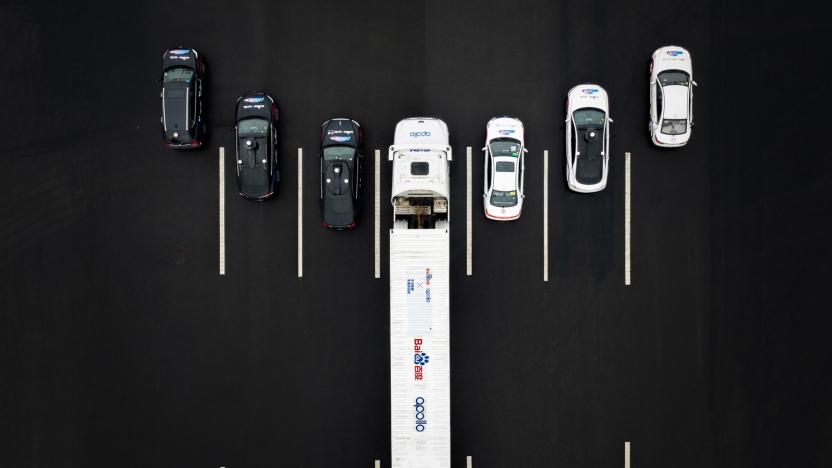
Baidu's self-driving car platform can handle parking and speed bumps
Baidu is starting 2019 with a big boost to its autonomous vehicle ambitions. It's launching Apollo 3.5, an updated self-driving platform it claims is the first open source system that can handle "complex" driving in both the city and suburbia. It's now better-suited to the challenges of the road, including parking, narrow lanes and speed bumps. You won't have to wait too long to see it in action -- Udelv is is planning to roll out as many as 100 test vehicles across the San Francisco Bay Area and other parts of the US.

Baidu taps Unity's game engine to test its self-driving cars
Unity, the same company whose 3D gaming engine brought you Cuphead and Hearthstone is now helping Chinese internet giant Baidu develop the next generation of autonomous vehicles, the two companies announced on Tuesday.
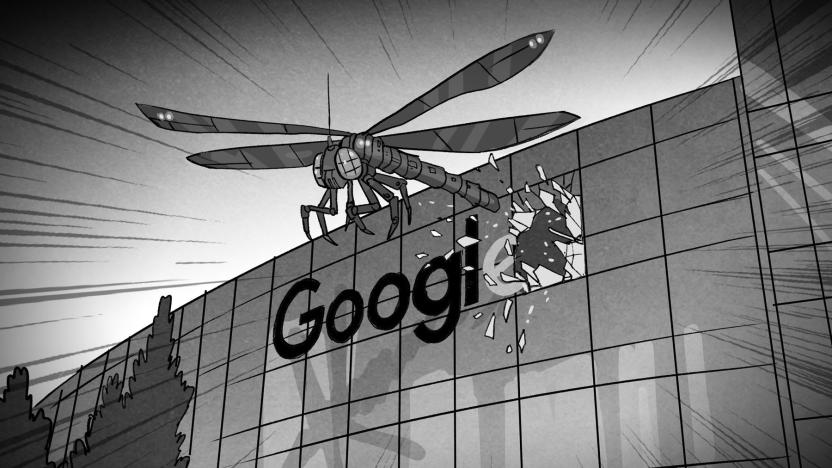
Google’s China search engine drama
The first time many of us heard about China's use of facial recognition on jaywalkers was just this week when a prominent Chinese businesswoman was publicly "named and shamed" for improper street crossing. Turns out, she wasn't even there: China's terrifyingly over-the-top use of tech for citizen surveillance made a mistake. The AI system identified Dong Mingzhu's face from a bus advertisement for her company's products.

Volvo and Baidu team up to build self-driving cars for China
It's not just Ford that's working with Baidu to develop self-driving cars for the Chinese market -- Volvo has also revealed its team-up with the tech giant. While Ford announced the partnership earlier, the Swedish luxury automaker says it's the "first foreign car maker to collaborate this closely with Baidu" when it comes to autonomous vehicles. The two companies will pool their resources to create and mass produce electric and fully autonomous vehicles when the time comes: Volvo will be in charge of developing the cars themselves, which will be powered by Baidu's Apollo autonomous driving platform.

Ford and Baidu team up to test autonomous cars in China
There's a new partnership in the autonomous vehicle game as Ford has announced it will be teaming up with Chinese internet company Baidu to work on autonomous vehicles, with testing set to begin in Beijing by the end of the year. The initiative hopes to achieve SAE L4 (a classification that measures level of human involvement) autonomous standards, meaning that vehicles can run autonomously within specific areas and under the correct weather conditions, within the next two years. And on the roads of Beijing, Ford will be joined by Mercedes-Benz, which too got approval to test cars in the capital city earlier this summer.
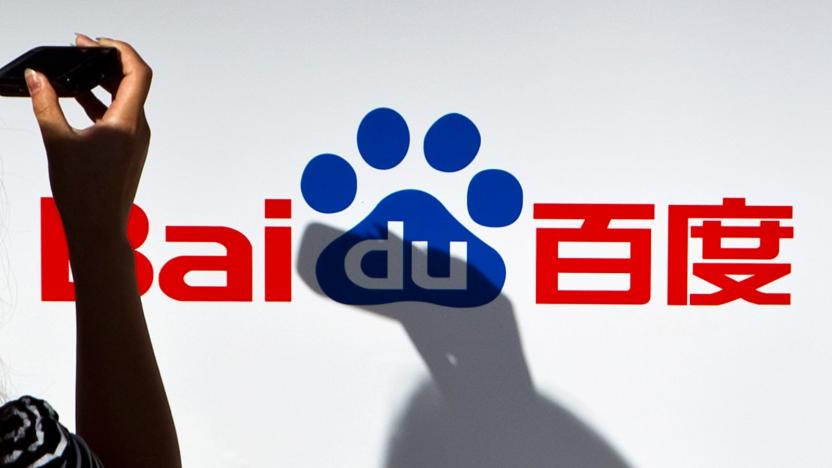
Baidu develops its own take on real-time translation
Google isn't the only big game in town when it comes to real-time translations. Chinese search giant Baidu has developed its own system, STACL (Simultaneous Translation with Anticipation and Controllable Latency). Like its rival, it can start translating within a few seconds, without waiting for people to pause. Baidu, however, is counting on flexibility as its ace in the hole.
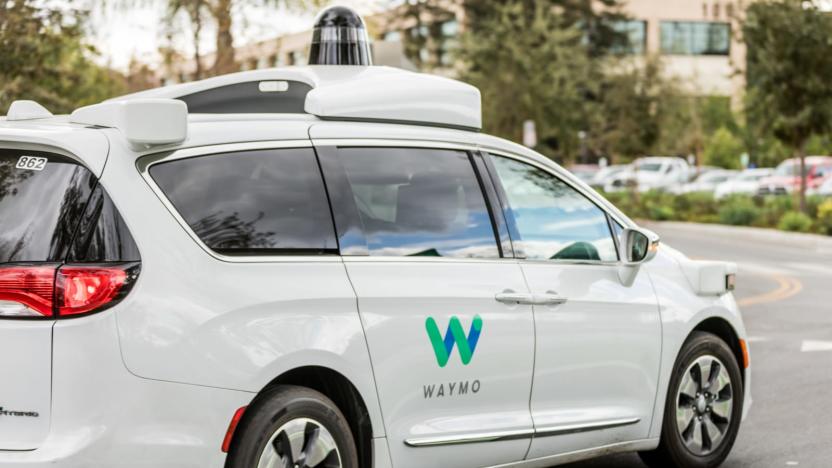
Alphabet puts down more roots in China with local Waymo office
Google's parent company Alphabet is continuing its push for a presence in China with a new Waymo subsidiary, based in Shanghai. Waymo – one of the world's leading autonomous car designers -- has confirmed it has set up a legal entity in the country and has people working there, but hasn't commented on its future plans.
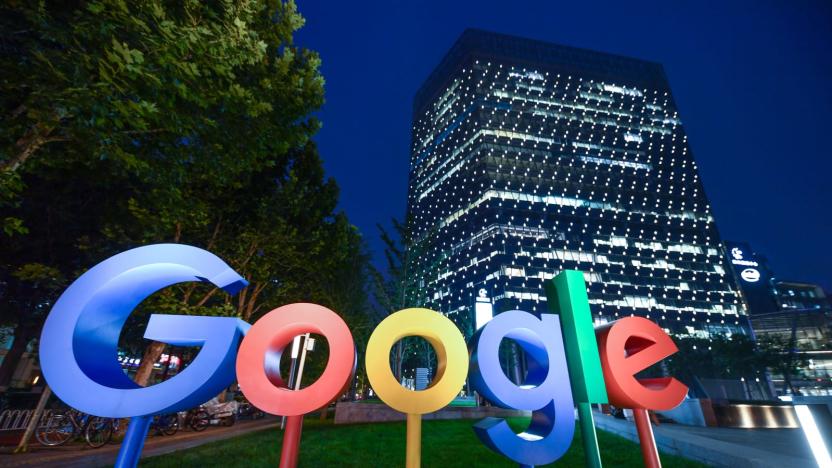
Google tracked banned words to refine rumored China search engine
If Google is planning a search engine for China, how is it planning to obey the country's strict censorship laws from day one? By getting some practice in first, apparently. The Intercept has obtained documents reportedly showing that Google has been using 265.com, a hybrid information and search portal it acquired in 2008, as a "honeypot" that would help it develop a blacklist for search terms in China. Google has supposedly been collecting info about search queries, which technically redirect to Baidu, to see if they would be censored.

Mercedes-Benz will test self-driving cars on public roads in Beijing
Daimler will soon take its Mercedes-Benz self-driving cars to the public streets of Beijing. It's the first non-Chinese company to win a license to test level 4 self-driving vehicles there. Level 4 is the second-highest tier of autonomous driving, in which cars can operate without human input in select conditions. Eventually, you might be able to take a nap while these types of vehicles ferry you around.
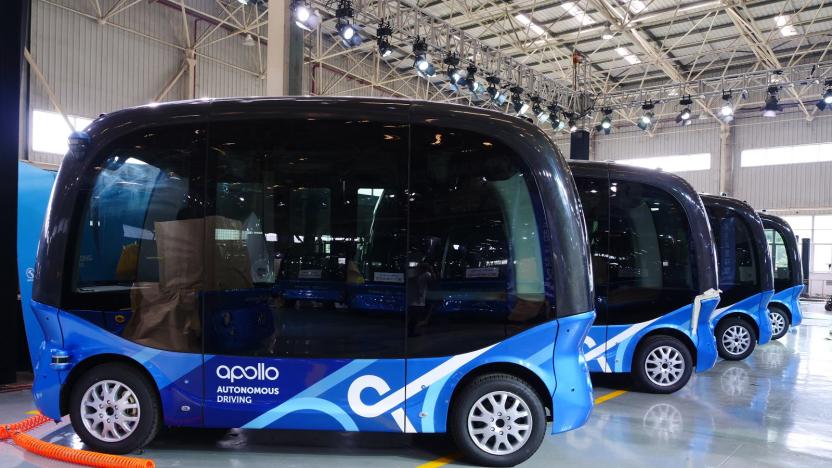
Baidu will deploy its self-driving buses in Japan
Baidu has started mass-producing its Level 4 autonomous mini-buses with the intention of deploying them not just in China, but also in other countries. Their first destination outside of China? Japan. The Chinese tech giant has teamed up with Softbank subsidiary SB Drive to launch a self-driving mini-bus service in Japan next year. They're bringing 10 "Apolong" buses to Tokyo and other Japanese cities in early 2019 after the vehicles make their debut in select Chinese cities, including Beijing, Shenzhen, Pingtan and Wuhan. The 14-seater buses will initially pick up passengers in tourist areas, parks, industrial campuses, airports and other geo-fenced locations.

Alibaba is the latest Chinese internet giant to test self-driving cars
China's Alibaba Group has been testing its own autonomous vehicle technology, the South China Morning Post reports, and is looking to hire an additional 50 self-driving vehicle experts. Alibaba's rivals Baidu and Tencent have also been working on autonomous technology and last month, Baidu received the go-ahead from the Chinese government to begin testing its technology on Beijing roads. Tencent reportedly sent one of its autonomous vehicles for a ride on a Beijing highway earlier this month.
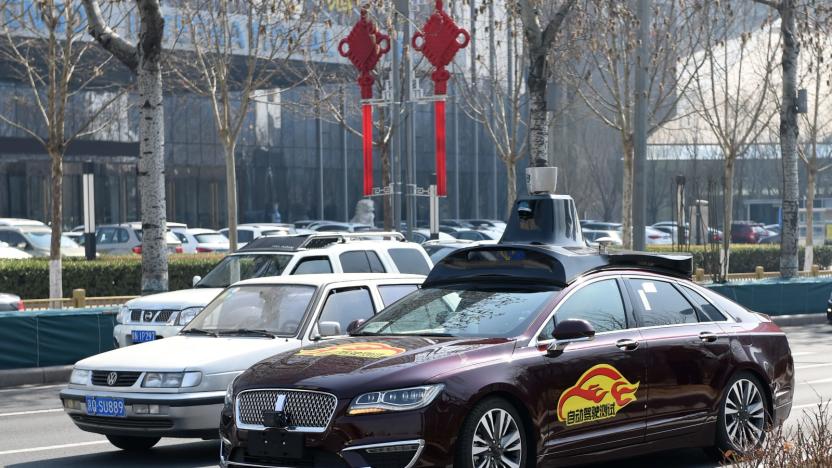
Baidu will start autonomous driving tests in Beijing
This week, China gave tech company Baidu, Inc., which wants to be known as China's version of Google, the go-ahead to start autonomous driving tests in Beijing's suburbs, according to Reuters. China is looking to compete with other countries with self-driving technology, so this is an important move that indicates support for the technology at a somewhat contentious time.
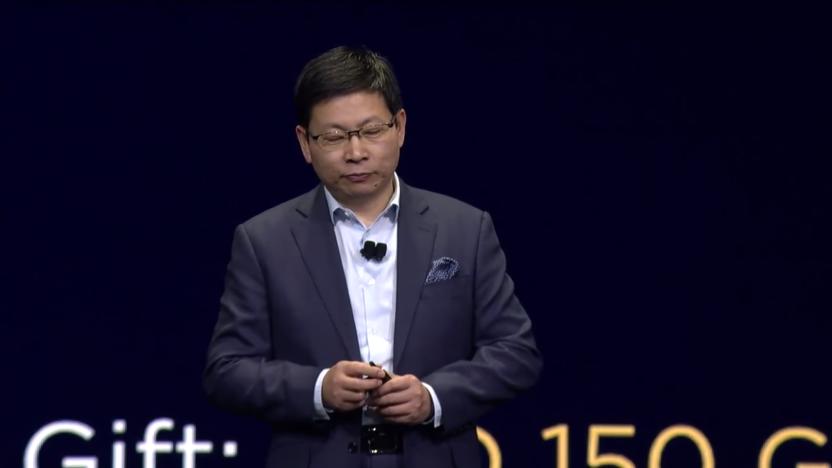
Huawei and its peers won't win over the US without trust
Standing in front of a slide simply titled "Something I want to share," the CEO of Huawei's consumer product division is about to break tradition. Richard Yu is going to directly address the reported partnership with AT&T that fell through at the last minute, pulling back the curtains, ever so slightly, on a business that is largely conducted behind closed doors. The Chinese electronics company recently overtook Apple as the world's second-largest smartphone maker in sales, but it still struggles to gain the approval of the American public.
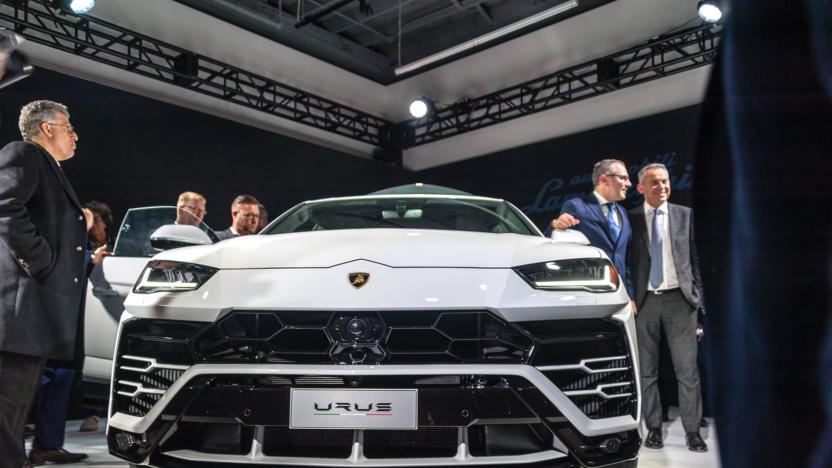
Lamborghini’s 650HP Urus is equal parts muscle and infotainment
Lamborghini's Urus is more than just an absurdly overpowered SUV, it's packed with technology both on the entertainment and safety sides too. That means along with its 650 horsepower twin-turbo aluminum 4.0 liter V8 (whew) you also have the option for a pair of Android Auto tablets mounted to the back of the driver and passenger seats. Oh, and there's a digital instrument cluster as well, which will either make keeping it under the 305 KMH (189.5 MPH) top speed easier or harder, depending on your driving style.

The Little Fish VS1 is a smart speaker powered by China's Alexa
It might not have the star power of Alexa or Google Assistant, but DuerOS, Chinese web giant Baidu's AI platform, continues to pick up steam in its native country. It seems like Baidu is trying to curry favor with a more international audience, too — it's here at CES to show off smart speakers that almost certainly won't wind up in the United States. The most sensible of the models on display was a cutesy, fabric-covered Echo Show lookalike called the Little Fish VSI, which wins our Best of CES 2018 award for Cutest, Least Descriptive Product Name.
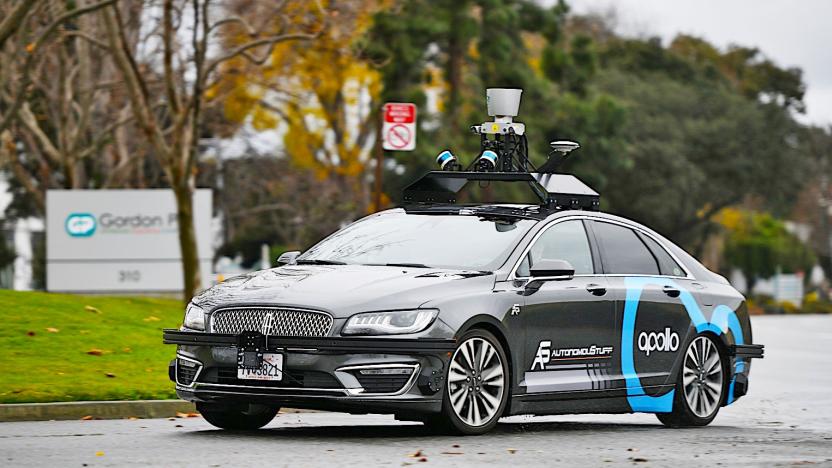
Baidu debuts its Apollo 2.0 autonomous driving platform
Baidu already bills itself as "the Google of China" and, like the Mountain View-based search giant, it's working feverishly to develop autonomous driving technologies. At CES on Monday, Baidu unveiled the fruits of its (and more than 90 industry partners') labor: the Apollo 2.0 platform.
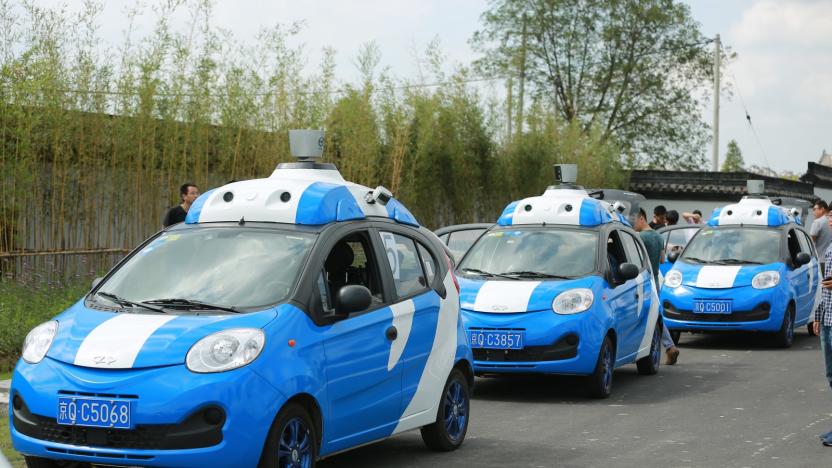
China will allow self-driving car tests on public roads
China is opening up its roads to self-driving cars. The Beijing Municipal Transport Commission released a statement today saying that on certain roads and under certain conditions, companies registered in China will be able to test their autonomous vehicles.

Nintendo Wii, GameCube games come to China on NVIDIA Shield
As revealed by industry analyst Daniel Ahmad, Nintendo is teaming up with NVIDIA to release some of its Wii and Gamecube games in China for the first time. While NVIDIA's Tegra chip is at the heart of the Nintendo Switch, in this case, the games will run on the NVIDIA Shield, which hit the market today in China. NVIDIA confirmed that New Super Mario Bros. Wii, The Legend of Zelda: Twilight Princess and PUNCH-OUT!! are all available now for the Shield in 1080p, while others including Super Mario Galaxy are "coming soon." Ahmad posted videos of Nintendo games running on the Shield (sourced from Weibo) and provided some pricing info, saying that the Shield in China costs 1499 RMB (about $226), while each remastered game costs 68 RMB (about $10). We wouldn't expect anything about this arrangement to expand beyond China in the foreseeable future, but the licensing arrangement is a way for Nintendo to crack the market officially. We don't have much information on the Shield that's available in China, but it is different from the US version, with local "content, store, search and more" plus a voice control AI powered by Baidu.

Teenage Engineering and Raven's 'H' and 'R' aren't typical smart speakers
Most people still don't know who or what Teenage Engineering is. But, those that do probably think of them as a music company — the iconic OP-1 synthesizer, OD-11 speaker and line of tiny Pocket Operator synths have earned Teenage Engineering that reputation. But more than that, the company is made of of people who love getting weird with hardware design; pushing the boundaries of what can be created is in Teenage Engineering's DNA. Two new products Teenage Engineering designed in partnership with Raven were just unveiled at the Baidu World conference in Beijing, China, and they most definitely fit with that ethos. Simply referred to by the single letters "H" and "R," the easiest way to identify devices is to call them smart speakers. But they don't in any way resemble what Amazon and Google have trained us to think of when we think of speakers that you talk to.












